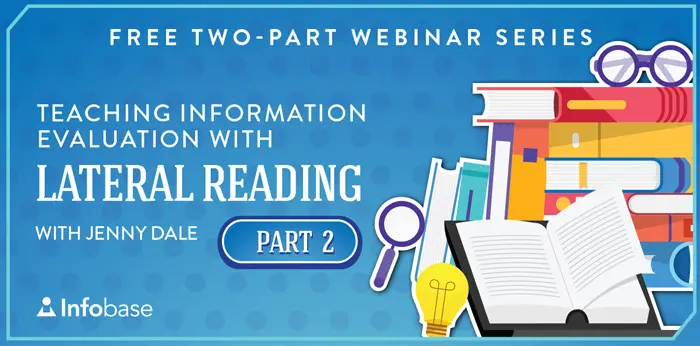Teaching Information Evaluation with Lateral Reading Workshop
Recent research has shown that lateral reading—the act of leaving a source to learn more about the source—is an efficient and effective first step in evaluating online sources. Lateral reading helps us understand the sources we come across better because it puts sources in context as part of a larger information network, and adding this strategy to our source evaluation toolkit can help us identify potential issues with sources and avoid misinformation. This two-part workshop with Jenny Dale, Information Literacy Coordinator at UNCG, focuses on what lateral reading is, why it’s an important strategy to integrate into online source evaluation, and how library workers can integrate this approach into their information and media literacy classes, training sessions, programs, and/or curricula.
Session #2: The How
This hands-on second session focuses on providing real examples of lateral reading activities that can be used in various library teaching settings. You will learn activities that can be adapted for different audiences, modes of instruction (online and in-person), and classroom environments (from one-shot sessions to credit-bearing courses). Participants will use the examples as inspiration to design a short lateral reading activity that they can integrate into their teaching practice.
 About Jenny Dale
About Jenny Dale
Jenny Dale is the Information Literacy Coordinator at UNC Greensboro University Libraries, where she helps members of the campus community navigate the murky waters of our current information landscape.



